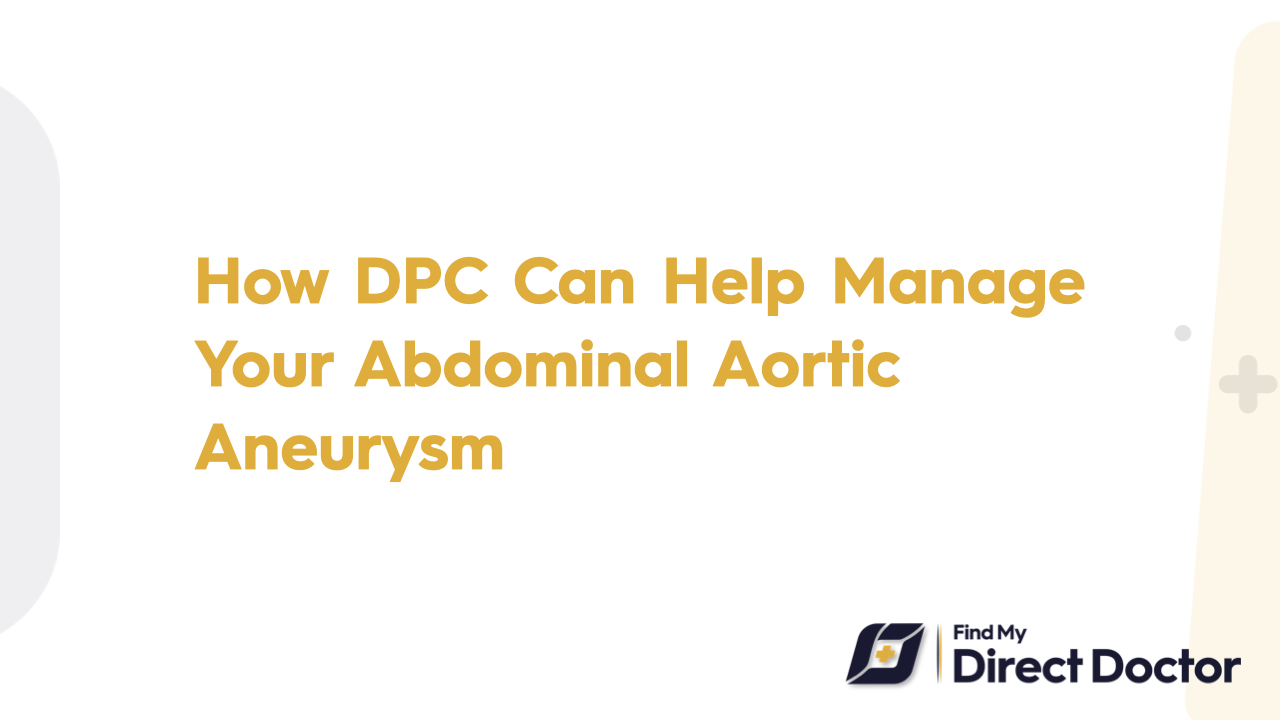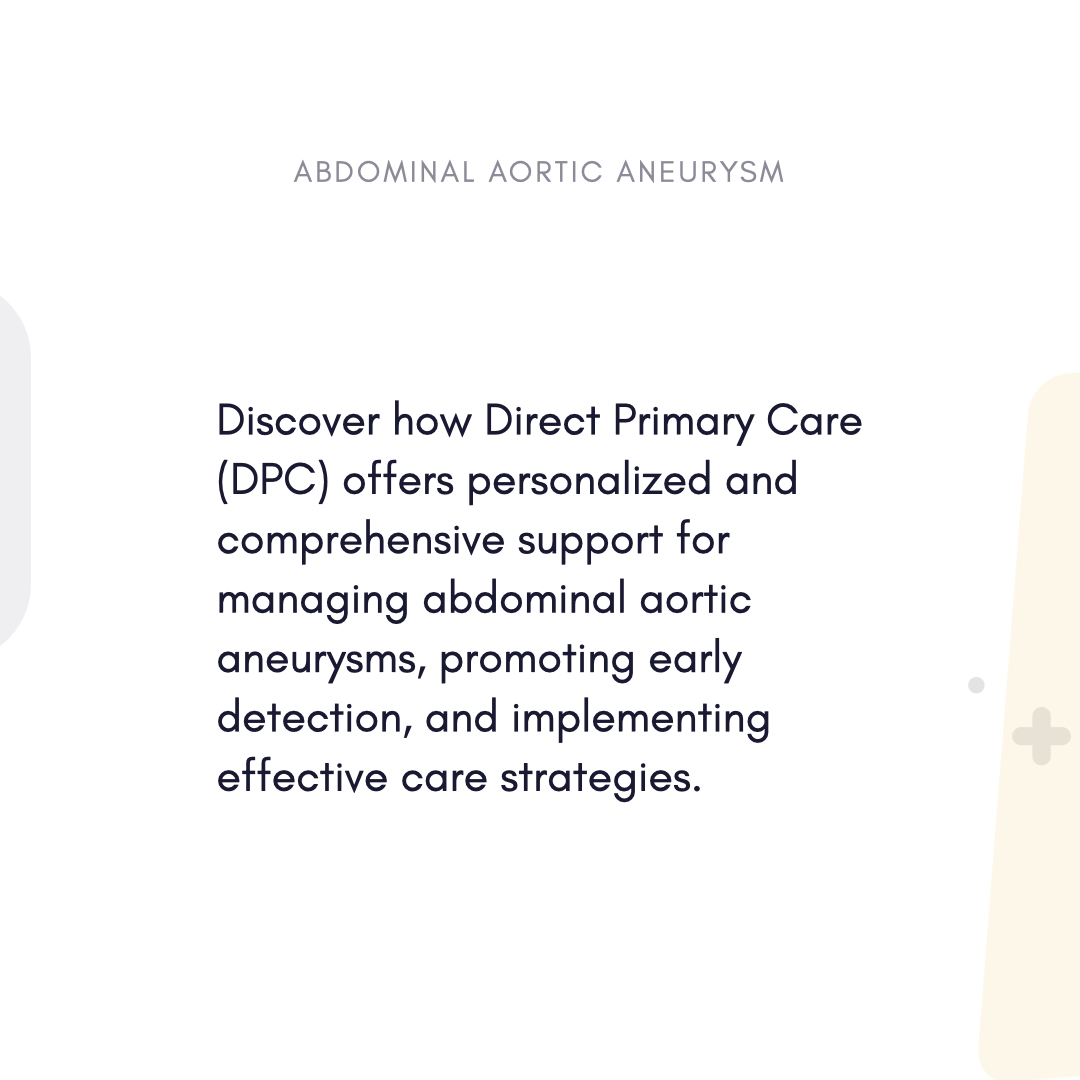



An abdominal aortic aneurysm (AAA) occurs when the abdominal aorta, the body's largest artery, weakens and balloons. It is crucial to detect and manage AAA early in order to prevent rupture, but traditional healthcare models may not always provide the personalized care and attention needed for optimal treatment.

Individuals with AAA who seek comprehensive and personalized healthcare can benefit from direct primary care (DPC). DPC practices prioritize accessibility, affordability, and patient-centered care by operating on a subscription-based model.
To effectively manage AAA, DPC physicians cultivate strong doctor-patient relationships, fostering trust and open communication. Patients benefit from longer appointment times, allowing for thorough examinations and discussions about their condition, including risk factors, lifestyle changes, and treatment options.
A pioneer in DPC, Dr. Michael Nothum, states, "In DPC, we prioritize individualized treatment plans tailored to each patient's unique needs, including patients with complex conditions like AAA."
A major advantage of DPC for AAA patients is its emphasis on individualized management strategies. In order to mitigate AAA progression and reduce the risk of rupture, DPC physicians are able to collaborate closely with patients, offering proactive screenings, monitoring, and lifestyle interventions.
A DPC provider specializing in cardiovascular health, Dr. Jennifer Smith emphasizes the importance of proactive AAA management. She explains, "We can detect changes in AAA size early on and intervene promptly, potentially preventing catastrophic consequences."
DPC practices often provide convenient access to diagnostic imaging services, such as ultrasound scans, to facilitate timely assessment and follow-up of AAAs.
Furthermore, DPC physicians prioritize patient education, empowering individuals with the knowledge and tools they need to actively participate in their AAA management. Patients can make informed decisions to improve their health outcomes by understanding warning signs and adopting heart-healthy habits.
To conclude, Direct Primary Care offers a compelling approach to managing abdominal aortic aneurysms, emphasizing prevention, early detection, and collaboration. With the help of DPC, individuals with AAA can improve their quality of life and reduce the risk of adverse complications by gaining greater control over their health and well-being.

The great physician Sir William Osler once said, "The great physician treats the patient; the good physician treats the disease." Patients with abdominal aortic aneurysm receive compassionate care tailored to their specific needs at DPC, not just treatment.
Previous Post